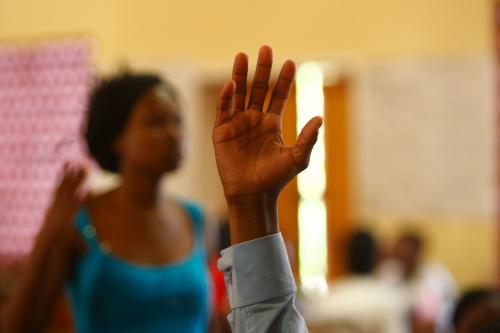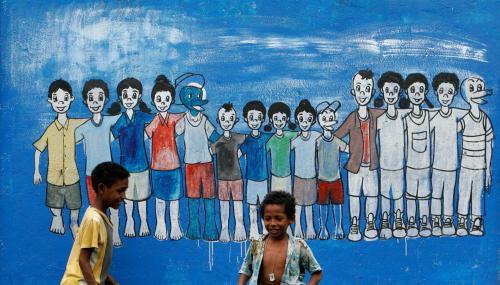Zimbabwe is one of the countries hardest hit by the AIDS pandemic resulting in an increased number of orphans. About 1.6 million children are orphaned due to AIDS and other causes. These children are subject to a myriad of risks, are more susceptible to poverty, lack health care and formal schooling, and are more prone to psychological distress, abuse and neglect. Therefore, orphans and vulnerable children (OVC) are in urgent need of specialized social services to enhance their protection and development.
The Basic Education Assistance Programme (BEAM) is the largest government funded program providing school fees for OVC in Zimbabwe. However research shows that not all children access the government assistance programs. Other non-governmental organizations are also working to address the education barriers that affect educational attainment for OVC in Zimbabwe. While these organizations provide vital support for OVC, their programs are subject to funding availability and donor priorities. This creates a patchwork of support that is not consistent and fails to address the complex and interrelated needs of OVC.
One particular model sticks out in Zimbabwe for its provision of holistic, long-term education support spanning primary school through the tertiary level. Capernaum Trust offers a distinct education service delivery model for OVC in Zimbabwe. Established in 1996 by Strive and Tsitsi Masiyiwa, founders of Zimbabwe’s leading mobile telecommunications company, the organization seeks to transform OVC into what they call ‘History Makers’ by redefining their destiny through an all-encompassing model. This model uses a comprehensive approach, utilizing programs that address the physical, social, academic, spiritual and psychological well-being of children.
They have targeted interventions that include:
- Scholarships covering school fees, levies and other related costs needed from primary to post- secondary education. The Trust provides scholarships to over 75,923 girls and boy in Zimbabwe, Burundi and Lesotho.
- Life skills, career guidance and internship programs for students to equip them with social and employment skills.
- Psycho-social programs, addressing challenges such as stigma, discrimination, low self-esteem and isolation associated with orphanhood in the era of HIV/AIDS.
- Health care and nutrition.
- eLearning opportunities, resource centers and libraries.
- Solar lanterns to help rural and urban students in areas without electricity extend the period of study time.
Due to the multiple and complex challenges that OVC face in their education, a patchwork of short-term programs will not create transformational and generational change in the lives of young people. There is need for more organizations to use models such as that of Capernaum Trust, and to scale up these intervention models to move beyond the payment of school fees and addressing the developmental needs of OVC holistically.
Editor’s note: Berejena recently completed participation in the Brookings Global Scholars Program at the Center for Universal Education. Her research has focused on education service delivery approaches for orphans and vulnerable children in Zimbabwe, especially adolescent girls. This blog reflects some of her research findings.








Commentary
A Patchwork Model Won’t Work: A Call for a Holistic Education Approach for Orphans and Vulnerable Children in Zimbabwe
July 12, 2012